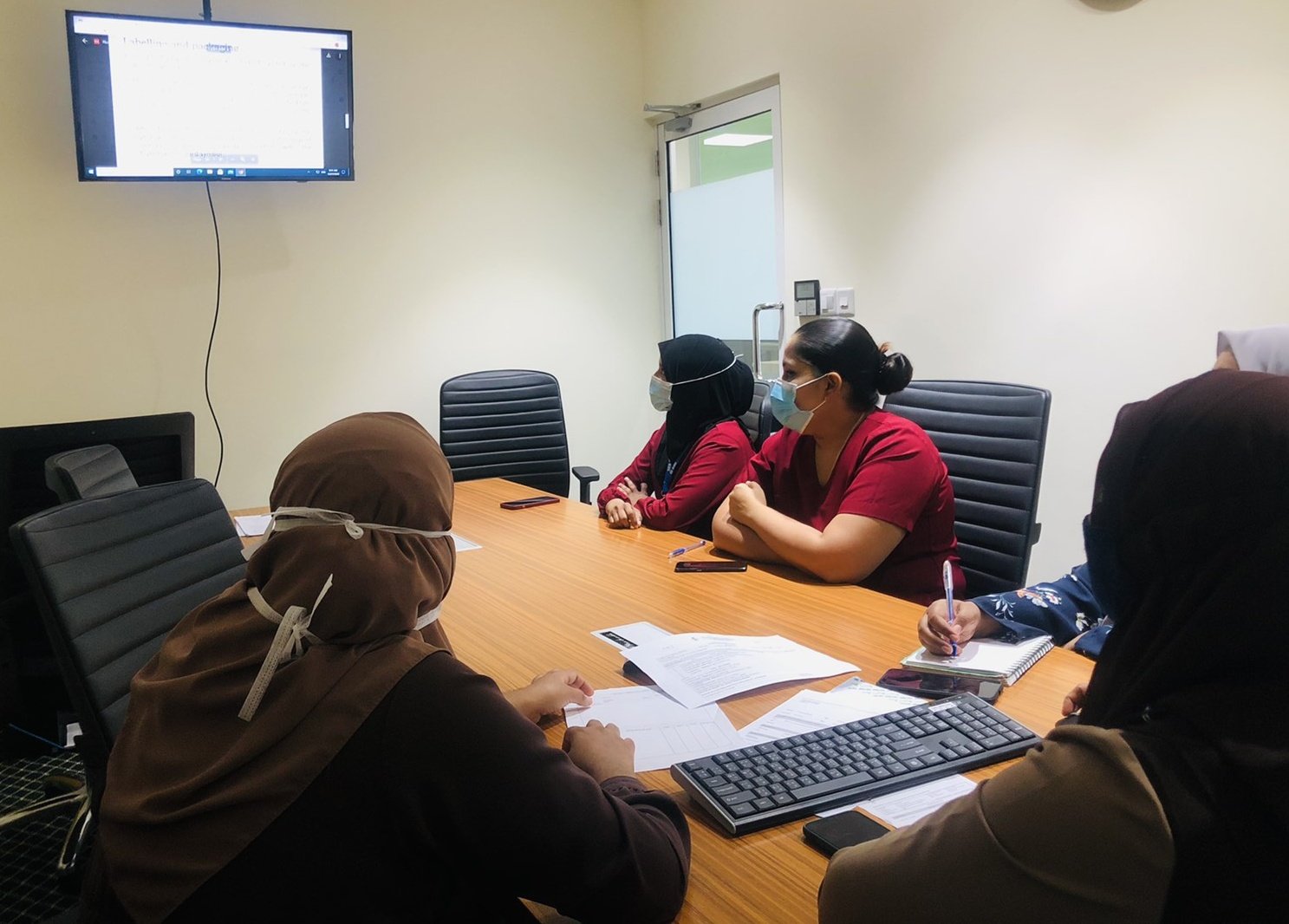Addu City, Maldives — The tertiary hospital in Addu City, Addu Equatorial Hospital conducts chemotherapy training sessions with the help of Hulhumale’ hospital to train their nurses better.
On Monday, AEH tweeted to inform that the hospital is helping their nurses improve their skills by conducting training sessions on administration of chemotherapy.
AEH informed that the Senior registered nurse Fathimath Ihusana & registered nurse Mariyam Nasha from Hulhumale’ Hospital assisted the nursing team of AEH during the sessions.
While AEH thanked the Hulhumale’ Hospital for their support in conducting the training sessions, the Hulhumale’ Hospital mentioned that it was a pleasure of the hospital to be able to work with skilled nurses in AEH.
Despite AEH being a tertiary hospital, the hospital has not been able to provide services to their patients at a tertiary level. Due to this, several complains have been raised by the locals as they have to travel to Malé city despite having the needed facilities in their homeland.
However, after the newly appointed CEO of AEH, Dr. Mohamed Solih has taken the responsibility of the hospital, citizens are expecting the services of the tertiary hospital to get better at a fast phase and for the hospital to use the appropriate machineries to treat sick people.
While speaking with local media outlet ‘adduLIVE’, Dr. Solih informed that the tertiary hospital is expecting to introduce new services during the upcoming year such as a catheterization laboratory, which would increase the services cardio patients receive from the hospital and restructuring of cardiology services as well.
Dr. Solih previously noted that the estimated MVR 180 million budget for the year 2021 is not ideal and that the hospital is roughly at the stage where Indira Gandhi Memorial Hospital (IGMH) was during 2006 and 2007, which at the time was allocated MVR 350 million as the yearly budget.
However, Dr. Solih said that while the budget constraints are understandable, he believes that the government would provide more funding when justified.





